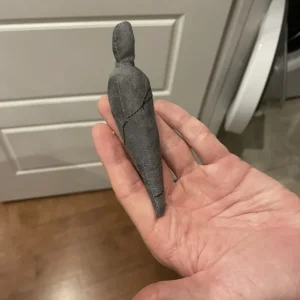On a bright morning in New Orleans, 75-year-old Elis made a choice that some might call daring. The thought of getting a tattoo had lingered in her mind for months, a small voice urging her to embrace a new chapter of life. Determined to feel a renewed sense of vitality, she stepped into a cozy tattoo studio, selected a delicate design that reflected her strength and zest for life, and went through with it. When the session ended, she gazed at the intricate artwork on her arm with a mix of pride and exhilaration. This was her message to the world: age was merely a state of mind.
Eager to show off her new tattoo, Elis decided to host a casual family gathering. She imagined their curiosity and perhaps even admiration. But when her daughter caught sight of the ink, her expression instantly darkened.
“Mom, what were you thinking?” she blurted out. “At your age, getting a tattoo isn’t just unwise—it’s embarrassing. You’re a grandmother! This is something a rebellious teenager would do, not someone with your responsibilities. It looks absurd, and people will judge you for it.”
Elis felt a pang of hurt, but what followed was even worse. Her son-in-law, whom she had always treated like her own son, burst into uncontrollable laughter. He laughed so hard that he could barely stand, tears streaming down his face.
“That’s hilarious, Mom! Seriously, a tattoo at your age?” he managed to say between fits of laughter. Elis’s heart sank. It wasn’t just the words; it was the cruel mockery that hurt the most. She felt humiliated and deeply wounded by their reactions.




